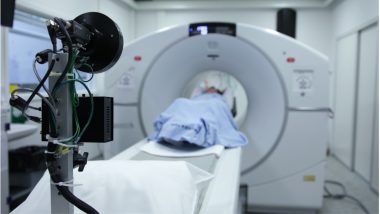According to a new study, people questioning their gender identity could be offered brain scans to determine whether they are transgender or not. For the first time, research has revealed that the brain activity of people who feel they inhabit the wrong body closely resembles that of the gender they want to embrace. The findings presented at the European Society of Endocrinology annual meeting in Barcelona are likely to provoke controversy among groups who argue gender identity should be a matter of personal choice and not medical definition.
An analysis conducted on around 160 participants showed that biological males with gender dysphoria – the experience of discomfort or distress due to their biological sex – had a brain structure and neurological patterns like biological females and vice versa. It also revealed that the distinct neurological differences are detectable during childhood. The scientists behind the new research say their discovery promises doctors a potent new tool with which to offer better advice at an earlier stage. Currently, children complaining of gender dysphoria typically undergo psychotherapy. They can also be given hormones which delay puberty so that decisions on further transgender therapy can be made at an older age.
Gender dysphoria (GD) affects an estimated one percent of the population, according to the Gender Identity Development Service. Professor Julie Bakker, lead researcher at the University of Liege in Belgium said, “Although more research is needed, we now have evidence that sexual differentiation of the brain differs in young people with GD, as they show functional brain characteristics that are typical of their desired gender.”
The team used MRI tests to examine brains of 24 female-to-males and 18 male-to-females. Their results showed the brain structures of the trans people were more similar in some respects to the brains of their experienced gender than those of their natal gender. Scientists believe gender dysphoria may be caused by the exposure of foetuses to additional hormones because of medication taken by the mother as well as a foetal insensitivity to certain hormones while in the womb.
(The above story first appeared on LatestLY on May 22, 2018 11:05 PM IST. For more news and updates on politics, world, sports, entertainment and lifestyle, log on to our website latestly.com).













 Quickly
Quickly




















